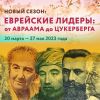Last week, Booknik read Nicholai Gogol, Olga Bergholz’s diaries, a novel by Ulyana Gamayun, and the autobiography by Vladimir Voinovich. He also talked to Mr. Voinovich about crucial things, walked in illuminated Jerusalem, attended the exhibition on the Jewish immigration in Germany, and Mark Rothko’s art show, watched Copie conforme at the Moscow Film Festival, studied tomatoes, thought about labor and diligence, learned I-words, abandoned stick-counting, and cooked cold beetroot soup. Booknik Jr. read Gianni Rodari, continued reading the story of Abraham, listened to a poem about a birdie and the sun, and rode kiddy railroads.
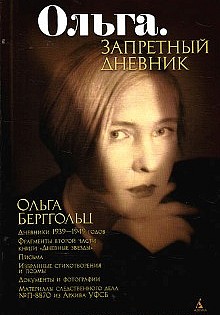
Olga. The Forbidden Diary, by Olga Bergholz
The Forbidden Diary is the first publication of Olga Bergholz case. What did we know about her anyway? Well, she wrote feature stories about soviet people. She even seems to have collected these stories into a book. Maybe some poetry for children. Oh, sure, she was the first voice of besieged Leningrad. Her February Diaries were read over the radio in winter of 1942. Turns out, we didn’t know a thing about her because there is another Olga Bergholz. Booknik reviewer Alexandra Dovlatova-Mechik reads diaries and poems by the soviet poet who was the symbol of war-time Leningrad.
Triple Personality
The Key to the Fields, by Ulyana Gamayun
The book was awarded the Non-Format Prize, and introduced by Yury Mamleyev. One could expect something subversive with these recommendations, something shocking that includes insomniac bears, living deaths, and other sorts of metaphysically real dismemberments. However, The Key to the Fields, being a truly non-format work, breaks all rules. Literature allows its characters to change the world around them, build the world of their own, and understand both themselves and each other. Here, a common girl turns into a princess, and everyone starts loving her not by means or a rose garden or a fancy-dress ball but thanks to her modesty and diligence in literary work. A contemporary young woman goes in search of herself by means of polishing words, like it happened in the times of Madeleine de Scudéry, and Jane Austen. Booknik reviewer Yevgeniya Ritz reads The Key to the Fields, and discusses literature, women, and searches for one’s self.
…and many other readable reactions in the Books & Reviews section.
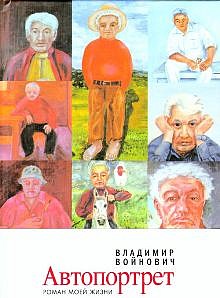
Self-Portrait. The Novel of My Life, by Vladimir Voinovich
The Eksmo Publishers have published the first part of Mr. Voinovich’s memoir, and the second book is on its way to hit the stores soon. Mikhail Maykov spoke with the author, discussed the most interesting themes of his memoir, including Jewish-Serbian relations, the KGB, Alexander Solzhenitsyn, and present-day Moscow, and Booknik’s contributing editor Dina Suvorova read his Self-Portrait closely.
The Light Has Covered Jerusalem
Can one express a wonder in words? In photographs? What happens if one combines the story and the images? The festival of light in an ancient city, what is it? Will those walls accept lasers, light diodes, mythical creatures, and poets’ prophesies come alive? Booknik’s Israeli reporter Ariel Bulstein reports, and Gali-Dana Singer shows the answers to those questions.
…and many other illuminating illusions in the Articles & Interviews section.
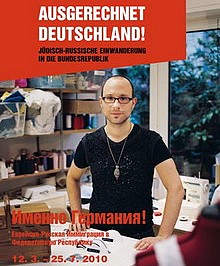
They mostly speak Russian in the German Jewish communities these days. The reason is the massive Jewish emigration from the former Soviet Union to the country where “Goethe’s House is only several kilometers away from Buchenwald”, as German literary critic Marcel Reich-Ranicki, a Polish Jew himself, said. The “Ausgerechnet Deutschland!” exhibition in Das Jüdische Museum der Stadt Frankfurt am Main is the first attempt to analyze Germany’s Jewish immigration, and summarize it, however, it cannot be said that this phenomenon has passed into history. Booknik’s German reporter Regina Kon attended the exhibition.
Color As a Method
Mark Rothko’s art show in The Garage is a highlight. One of the 20th century major artists is presented in the Russian capital so extensively for the first time. Thirteen of his works that used to belong to the financier J. Ezra Merkin have recently been auctioned, and they landed in Russia, in a private collection whose owner decided to demonstrate it in Moscow. Booknik reporter Yevgeniya Brodskaya infused the works of “classic” Rothko of the late 1940s—early 1970s.
…and many other artistic artifacts in the Events & Reports section.
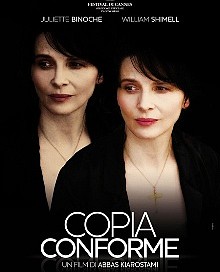
Copie conforme, directed by Abbas Kiarostami
This film by the Iranian director has been premiered at the 32nd Moscow International Film Festival. The star Juliette Binoche received the latest Cannes Film Festival award for the best female part. This enchanting picture is comprised of the conversations’ fabric, where characters talk to each other, to their friends and acquaintances, to strangers, waiters, and their telephone parties. There are also some Italian sculpture and brickwork present. They speak three languages in this film, Italian, French, and English. Plus, two other languages, male, and female, and the interlocutors translate from them each in his or her own head. Their conversations are infidel like tired spouses, pointed like arrows of jealousy, and graceful like cats. Booknik’s contributing editor Dina Suvorova watches the film, and confirms the copy.
Like to Eat It, But Don’t Like It Per Se: The Baker’s Dozen of Facts about Tomatoes
The first tomato of acquaintance for this author was the character of the children’s book by the Italian communist Gianni Rodari. That one was easy. But only with years, the author realized the depth of Signor Tomato’s downfall. The vegetable defected to the fruit side, thus committing not only a class betrayal but racial one as well. From the purely botanical point of view, however, the deed was not that awful, for Tomatoes and Counts Cherry are both berries. These, and other facts and factoids about tomatoes are relayed by Booknik contributor Yevgeny Levin.
…and many other vegetable vistas in the Columns & Columns section.
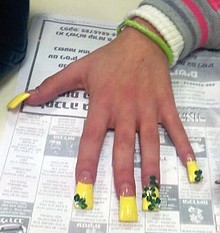
Instead of looking for jobs, my charges were discussing metempsychosis. Like, first, you’re born as a bird or a fish, and “remain a baobab for a thousand years until you die.” I asked them if they were Buddhists by any chance. “Why, no,” one of them said. “This science is very Jewish. Them Buddhists stole the reincarnation theory from us Jews.” Keren Pevzner continues with her stories about her students.
…and many other yarns by yard in the Stories & Essays section.
Gogol Again
A year ago, on April 1, 2009, all Russian literature lovers celebrated the Centennial of the Russian classic Nicholai Gogol. Booknik, as is his custom, was conceptually late for the festivities by a year plus, and he decided that June 2010 was just as good for celebrating the writer’s 201st birthday. Who said that authors should be remembered only on their birthdays? To cut the long story short, we are unveiling our new quiz on Nicholai Gogol’s live and creative output, as well as his place in the Russian (and global) culture.
…and may other lateral late-comings in the Contests & Quizzes section.
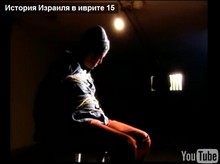
When we were kids, we learned to count sticks. It was a simple and effective way of learning. Later, we grew up, and started to use more complicated appliances, like slide rules, calculators, and computers. Nevertheless, some of us remain faithful to the bad ol’ stick system. Such people usually work for some law enforcement agency, and they stick to sticks to get results from their suspects, and get another (s)tick in their reports later. So we have inquisition on one end of the stick, and human rights on another one. We are not children anymore, our talking head Arkan Kariv muses, so why do we still need those sticks?
Don’t Grudge the Brew 48: A Soup for Midday Heat
Roasts, hot appetizers, ribs on coals, all those dishes should be banned on a hot and humid summer day in Moscow or Tel Aviv. Leave only gallons of cold mineral water. However, one can’t live on water only. And one beetroot is clearly not enough. This is why our inventive maestro Roman Gershuni adds a boiled potato, sliced cucumber, radish, onion, and half of a boiled egg, and gets a summer beetroot soup that is truly cold.
Hebrarium, the Lexicon of Jewish Whatnots: I2
Where do they speak Yiddish? How old is the Hebrew? What did Hillel answer about Judaism? Watch our Hebrarium, and get rich on useful knowledge with the help of our TV sorcerer Kirill Chichayev.
…and many other watchable wonders in the Video Blog section.
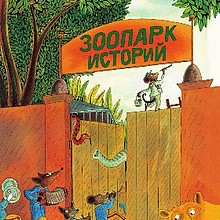
Animali senza zoo, by Gianni Rodari
It doesn’t seem to be too bad if the animal kingdom is ruled by a mouse or, say, a rabbit, now does it? A rabbit will be an excellent king, kind and just. The ruler shouldn’t be cunning, evil or crafty. He’ll protect the weak, and the oppressed. However, it is quite another kettle of fish in the tale by Gianni Rodari that Booknik Jr. now reads.
Take Your Son
Abraham had to endure a lot of trials. Nimrod tried to kill him, and Abraham had to emigrate to Egypt, and fight four kings to defend his nephew Lot. For a long time, he didn’t have any children of his own, which he wanted very much. Nevertheless, all these were only a preparation for the last, and hardest trial. The story continues, as told by Zhenya Lopatnik.
The Sun and a Birdie
The tenth poem by Kadya Molodovsky is about a little bird who befriended the sun. You don’t believe it, do you? Then listen to Yana Ovrutskaya over the Booknik Radio.

Deeply respected conductors request their no less respected passengers to occupy their seats as per their purchased tickets. Before the departure please listen to the very important announcement made by the Booknik Jr. contributing editor Alexandra Dovlatova-Mechik that goes like this. The Children’s railroad exists. The 15-year old engine drivers, and 10-year-old conductors are not the fruit of someone’ inflamed imagination. They are not the Zwölfkinder spillout, neither are they a realized mother’s dream—or a nightmare. They are real. Pinch yourselves, our journey starts. Watch the scenery closely. The Moscow Children’s Railroad wishes you a good trip.
We’ll Drive, We’ll Go in a Flash
The first children’s railroad in the USSR was built in Tbilisi, and the one constructed near Moscow, in Kratovo, followed soon after. Later, there were others in many cities of the xSU. Like their country, some of those railroads didn’t live to see this day, and some of them remained only on paper, but there are the ones that still function beautifully. Iraida Stepnova tells about the most interesting ones.
…and many other trippy trips at Booknik Jr., also known as Family Booknik, our own web site for kids and their elderly kids.
Saddle up! Booknik and Family Booknik are supported by the AVI CHAI Foundation.









